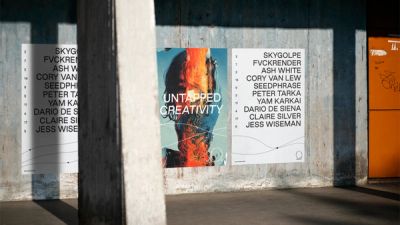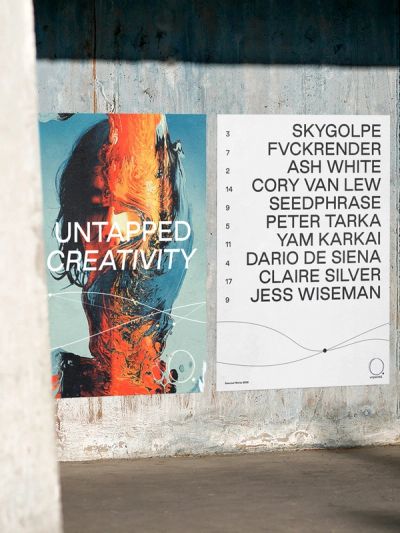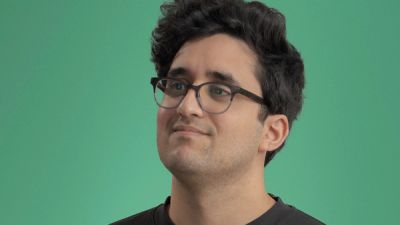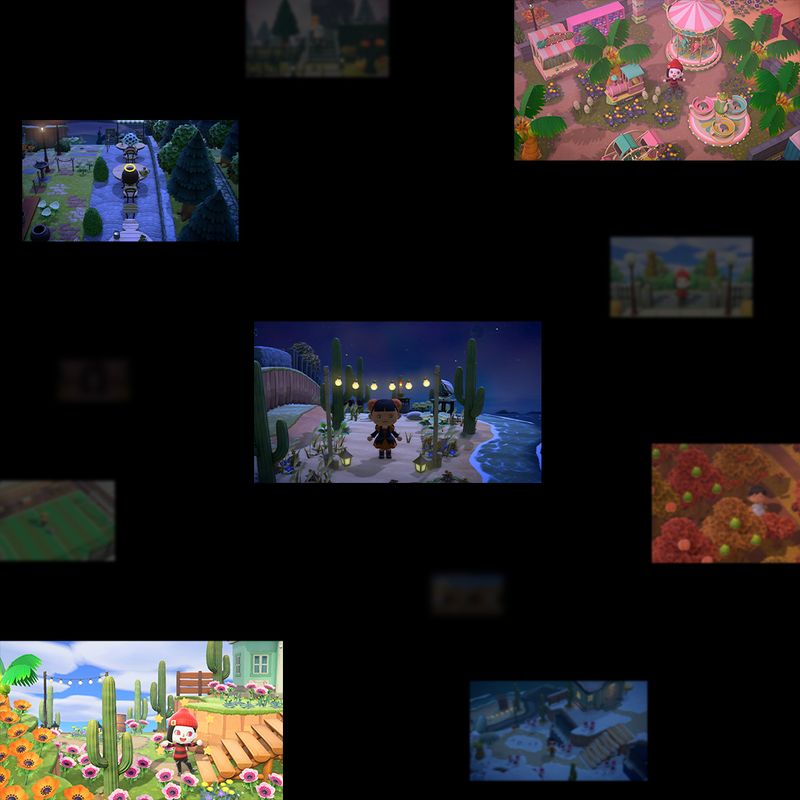
“You’re Gonna Love the Metaverse”
“Find the Metaverse that wants you.” Creative Director Erin Kilkenny and Art Director Lili Emtiaz talk Animal Crossing, subreddits, and world-building for brands.
Lili Emtiaz: Hi, Erin.
Erin Kilkenny: Hi, Lili. So I hear you’ve been crossing animals.
L: Yes, I'm three years late to the trend. So, Erin, what's your relationship to Animal Crossing?
E: My relationship to Animal Crossing is like just about everyone else. When the pandemic hit, I panicked, ordered a switch, and bought Animal Crossing and a couple other games, and got completely obsessed with it. I had nothing else to do in my life besides that, and like, bread baking—the most obvious things to fill your life with in March and April of 2020. I found the first part of the game kind of frustrating, even annoying. But the moment you unlock all of the world-building elements, it is much more interesting.
L: Yeah, that's how I felt when I started playing. But then I started looking at islands on YouTube and Pinterest, which remained my only reference points until you signed back on. As a designer, I lost it with establishing visual guidelines. I started getting really specific about what flowers or fruits grew in what region, how many boxes are in a path, and it just kept unwinding until I had made the longest brand guide that nobody asked for.
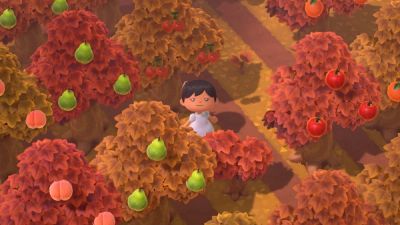

E: That's super funny to me, because I feel like I have the opposite approach. What is your approach to building the island? What rules do you have? Because you're obviously making them.
L: Aside from the paths and flowers, I kind of struggled with what I was building. I started to just rebuild memories. My partner and I took a trip to Joshua Tree Park and I created a little desert. Anytime we do something I build it. We watched the World Cup this year so I've spent the past week building a stadium. So that's kind of where I landed. I have these basic guidelines of what materials I'm using and approaches to landscaping that add a bit of cohesiveness to my island. But then when it comes to the specifics, I'm recreating real places in my head.
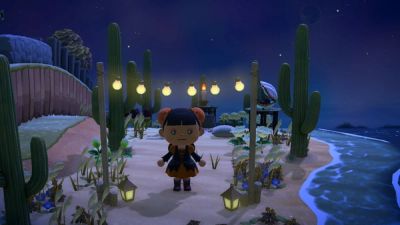
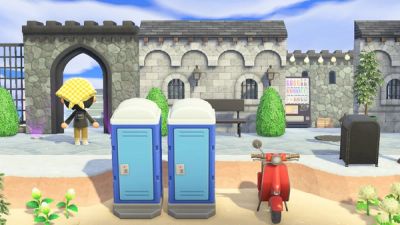

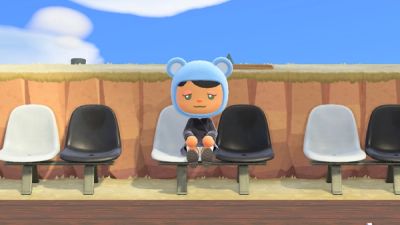
E: I have a bit of a similar approach with completely different execution. When I started the “making your island” portion I thought, “Oh my God, my island has to be Fire Island” the gay beach town we go to almost every summer. But I can't just get an idea and keep doing it forever and not get bored, unless the client makes me. And then two summers ago, I went for this hike in the Sierra Nevada. So part of that was like, oh, I want to add a hiking trail. So then I started applying this more organic, non gridded logic to things. When I came back to the beach zone and Fire Island and I was like, this game is so cutesy. I want to find and download all these textures to make it gross, more like the Rockaways, in the beach zones, and just full of trash and broken concrete and graffiti and stuff. That also came from watching tons of YouTube island tour videos—I was super drawn to city items and concrete and roads and completely transforming the cutesy island into something that felt more real and cluttered. And again, with it being a bit more organic and a bit less gridded, mostly because, you know, that's how cities actually happen.
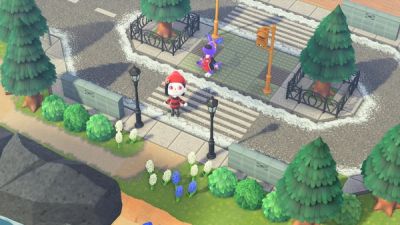
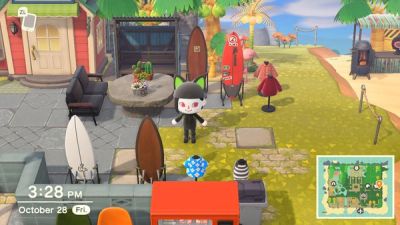
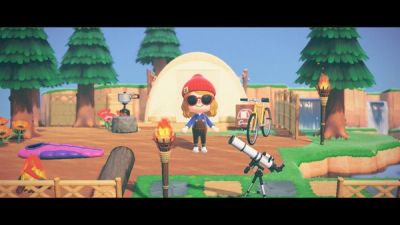
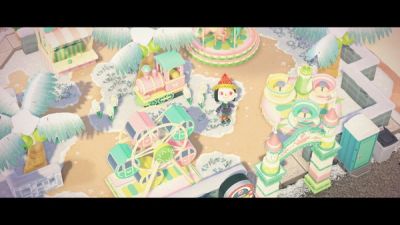
L: We've both obviously had our perspectives change based off of these YouTube islands. But when it comes to other people, do you like interacting with other online users?
E: No, I only like interacting with you, because you're my actual friend. I don't like strangers from the internet.
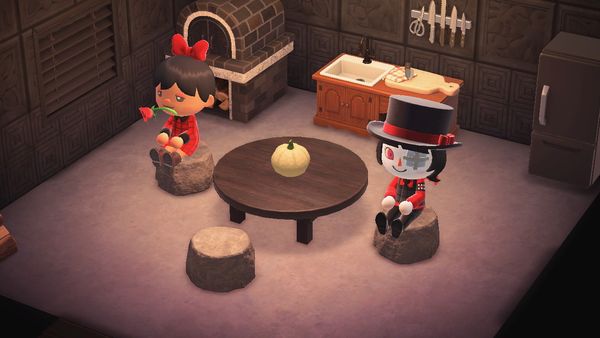
L: Your partner made a joke about us saying “You’re gonna love the Metaverse.” Would you be interested in spaces like the Metaverse, knowing it might be a broader audience than your inner circle?
E: It's bad enough listening to trolls on Twitter. I don't want to see their pantsless avatars yelling. Social spaces on the internet have become so toxic in so many ways, especially when it's the general population. The only social spaces on the internet that I like, that I interact with on any sort of regular basis, are very narrow interests. Like subreddits, which are user-moderated. The metaverse just seems like you would get on there and it would be extremely annoying immediately and you just want to get off. Like, “Why did I spend $1,200 on a headset to do this?”
L: Ultimately, it’s hard to gauge an opinion on the Metaverse not knowing the tools. In terms of world-building, whether it be on the Nintendo Switch, Metaverse, or a third platform—do you foresee a future where brands will need to get involved in world-building?
E: That's a really good question. It's a thing that a bunch of brands might want to try but like anything on the internet, I wonder how much of it comes off as disingenuous. The Metaverse-adjacent things that people like and use seem to be narrower-interest than a general social network. Gaming, like Roblox or Minecraft or Warcraft. Or, I have a smart bike trainer, where you get on this app called Zwift, and you’re riding with 1000s of other people from across the world. You don't really talk to people, but you can ride in groups, and you can give people a thumbs up or a high five. They even have races. And you ride through different worlds, it’s cool. It’s about finding communities that will be receptive to your brand. But do I want to go shop at Walmart in the metaverse? No!
L: I feel like for the past couple of years anytime someone asks about social strategy and how to get their brand to come across, there’s been this blanket idea that you have to be authentic. How brands translate that is really different. But like what you're speaking to, the world you're building has to be relevant to the world that you're selling.
E: Well, in that sense, part of what is frustrating about trying to do a social strategy for a brand is that you're working with things like Instagram and Twitter and TikTok, where it’s a vortex of too many voices. So for the past decade, everyone has been trying to break through, and do, like, “funny brand on twitter,” posting memes, which can come off as disingenuous now. Was it Mika who wrote that article on authenticity and brands? And he said, the most important thing about being authentic as a brand is defining what you're being authentic to. Authentic isn’t a brand value on it’s own. That’s a really smart observation. If our client were to say, “What should we do about the metaverse?” I'd say, “Find the metaverse that wants you.” You want to be adding value in spaces where you can add value, right? Rather than shouting into the ether.
L: If and when brands start to answer the question of how they want to interact with users in this new online space, what do you think it will mean in terms of a brand guide?
E: A brand guide isn't how many pixels your headline is from your body copy. It’s an inspiration and a jumping off point for what people can do with it. Brands have to think about themselves in physical space, and they will be forced to think about themselves in a pseudo physical, dimensional digital space at some point.
L: Yeah, and it's not an easy task, I will say, after losing about four months of my life to this game. Well Erin, thank you for sitting down with me.
E: Thank you, Lili for being my one friend on Animal Crossing and for not being a troll.
L: I'm so sorry for bringing you back into it.
E: I really enjoy coming to your island and seeing what you're working on. It inspires me!
L: Same to you.
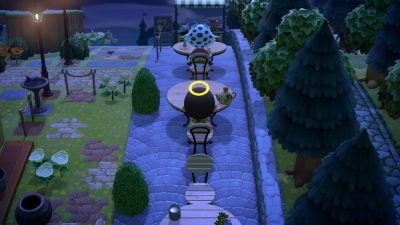
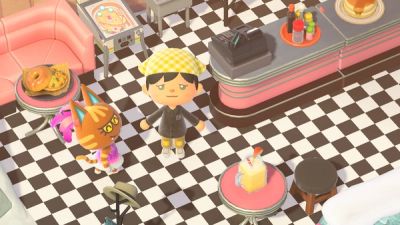
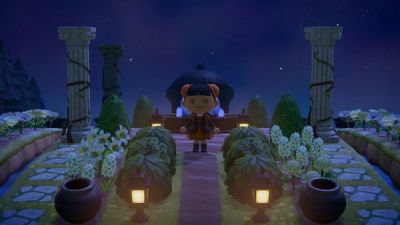
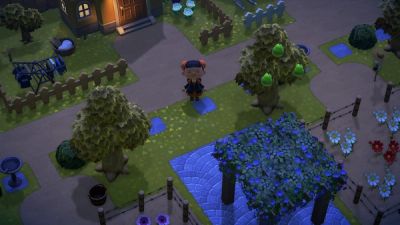
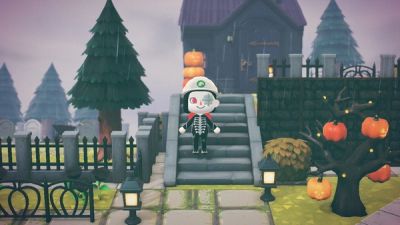
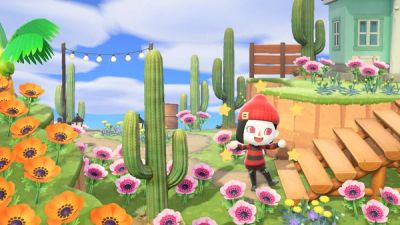
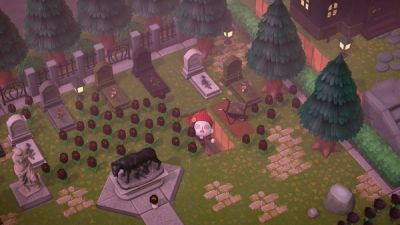
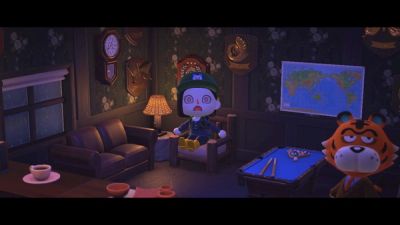
Explore more
New business inquiries.
How can we help?
NYC 11:05
STK 05:05
LA 08:05
Get our newsletter
Sign up for updates,
insights, and inspirations
from our studio.

